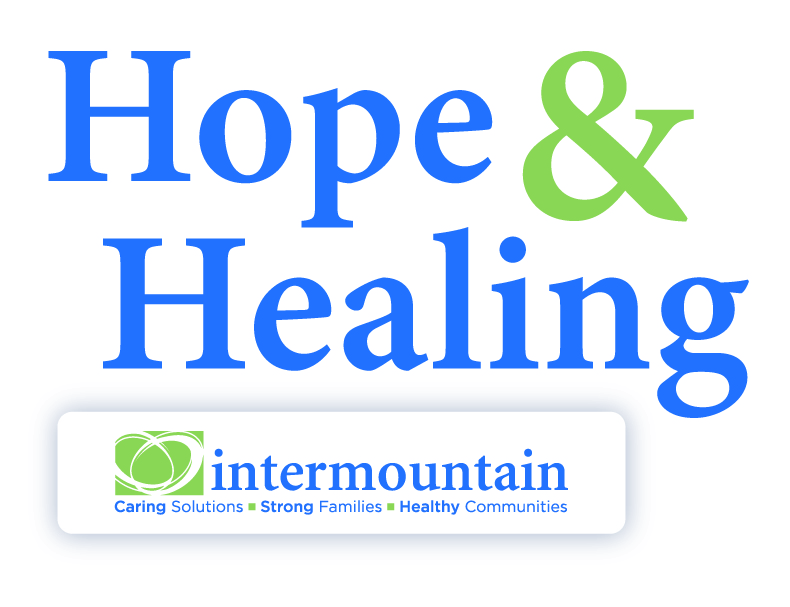By Intermountain Chaplain Chris Haughee, D.Min, M.Div.
Cutting. Self-harm. It is a phenomenon much more common today than twenty-two years ago when I entered children’s and youth ministry. It’s certainly not uncommon behavior in the emotionally disturbed children that Intermountain works with. That’s why I want to share a little with you from a conversation I had with Joelle Johnson, formerly one of the community-based counselors at Intermountain.
We sat down and talked at length about a number of issues that surround the “scary behaviors” that youth engage in. How we react as parents or care givers makes a big difference in not only addressing the immediate concerns we might have for an unsafe behavior, but also addressing underlying needs.
Whether it’s cutting, suicidal thoughts or an eating disorder, these “extreme” behaviors can send parents, youth leaders, and churches spinning to try and figure out the best way to address the needs being expressed. I’d like to share with you a few thoughts, and I hope you view the video linked to this post and share with others who might also need some direction or encouragement.
First, if your child or a child you are working with is engaged in self-harm, it’s important to realize that this is a form of communication. When children are little, parents are very adept at discerning what various cries, coughs, or behaviors mean and we do our best to meet the need—a dirty diaper, time for a feeding, or a need for closeness. As our children age, and especially when they enter those somewhat prickly teenage years, parents can be confused by what their children’s behavior is communicating. It seems easier to “just give them space” and hope they work it out until they can come and express with their words what their need is. But inside each older child engaging in self-harm is that same little one who more obviously cried, moped, or threw a tantrum until you got it right! In thi
s light, we can view cutting and other scary behaviors as a way of sending a nonverbal message. Sometimes the message is as simple as “I need control, and this is something I can control.” Cutting and self-harm is a way of expressing something that is difficult to express.
Second, it’s important to get help and to not shame the child for these behaviors. I often tell the groups I speak to that we ALL have coping mechanisms. Adults frequently meet unspoken needs through physical expression. What are you communicating when you get home from a long day at work and reach for that bottle of wine or when you are so stressed out you go exercise at the gym? I know that some of my coping mechanisms are healthier than others! And, while it may sound strange to you, self-harming behaviors are a coping mechanism. While some coping behaviors are more socially acceptable than others, the answer is to replacing an unhealthy behavior is find a healthy alternative. A licensed therapist or counselor would be an excellent resource for helping the self-harming child get at the root feelings that need to be expressed in a healthier way, and identifying what a better alternative might be. Start by listening to your child and trying to meet the need expressed by their behaviors, and if neither of you knows where to start, that’s where a mental health specialist can provide the needed insight.
Lastly, think about the culture of the home, church, or youth group that the self-harming child is a part of. This is not to be done in an effort to assign blame, but rather to understand the spiritual, relational and emotional environment the child is experiencing. Has the expectation been set that a child can come with any issue and be unconditionally loved? Is authenticity and openness an expressed value that the child can see lived out by the adult role models around them? If so, it is much more likely that a child or teen will feel open, once they are ready, to share those difficult feelings and emotions that they once felt could only be controlled or expressed through self-harm.
I hope this article and corresponding video have been an encouragement to you. Additional help and services can be accessed through Intermountain’s team of trained and caring professionals. If you are feeling overwhelmed, please reach out and ask for help.
The Reverend Dr. Chris Haughee is a licensed minister of the Evangelical Covenant Church and has served as chaplain of Intermountain’s residential services since 2012. An adoptive father to two, Chaplain Chris Haughee holds a Doctorate of Ministry with a focus on advocacy and cross-cultural ministry engagement. You can follow his ministry at www.intermountainministry.org or contact him at chrish@intermountain.org





